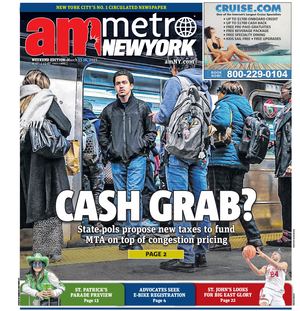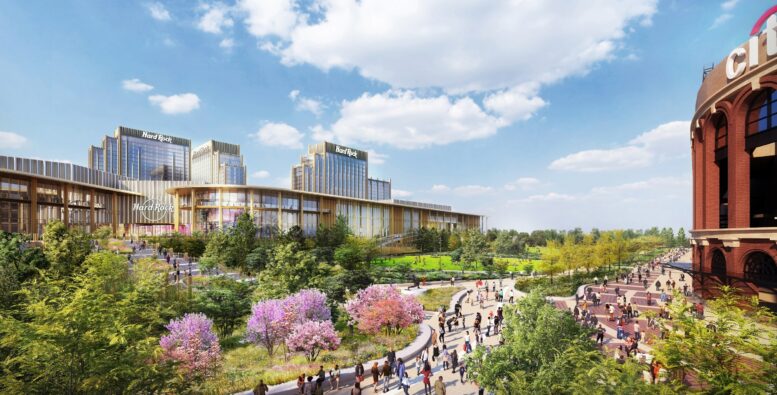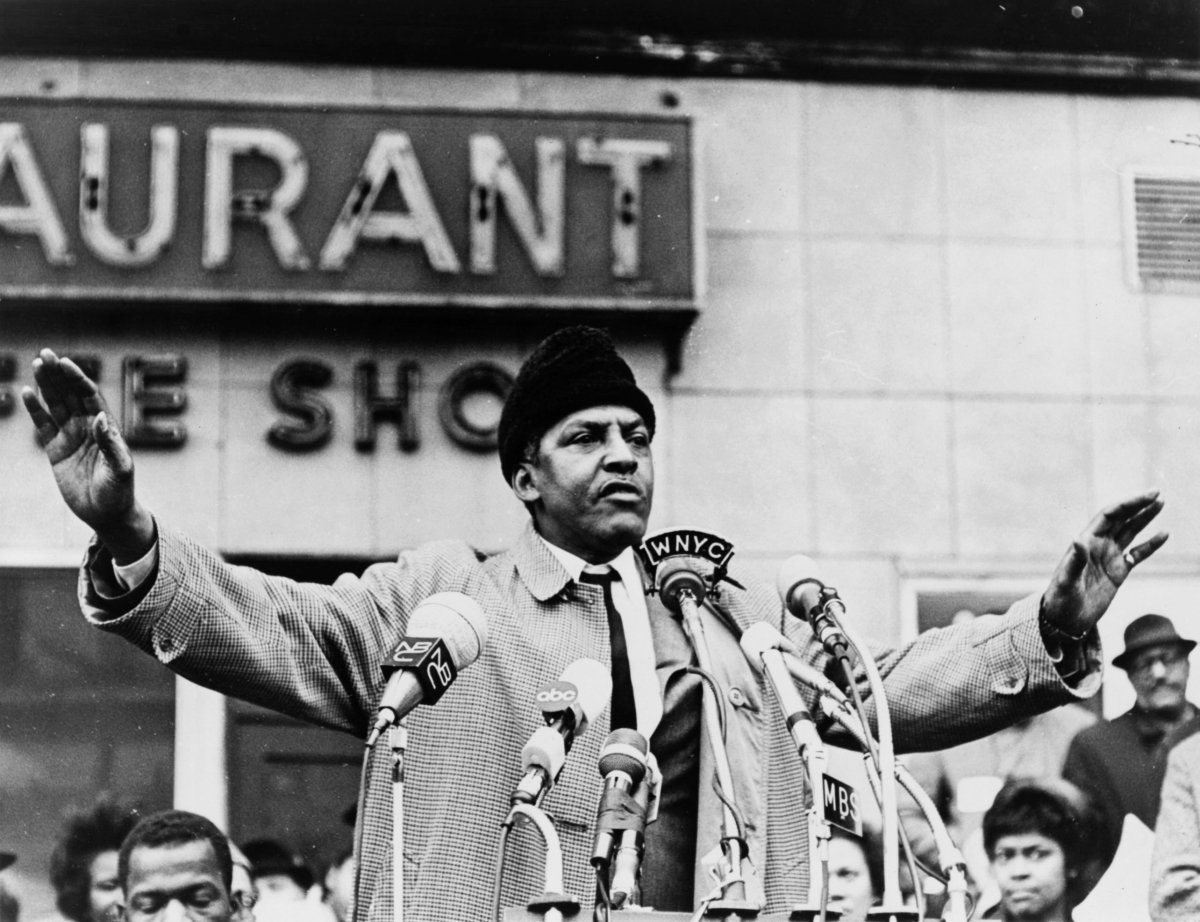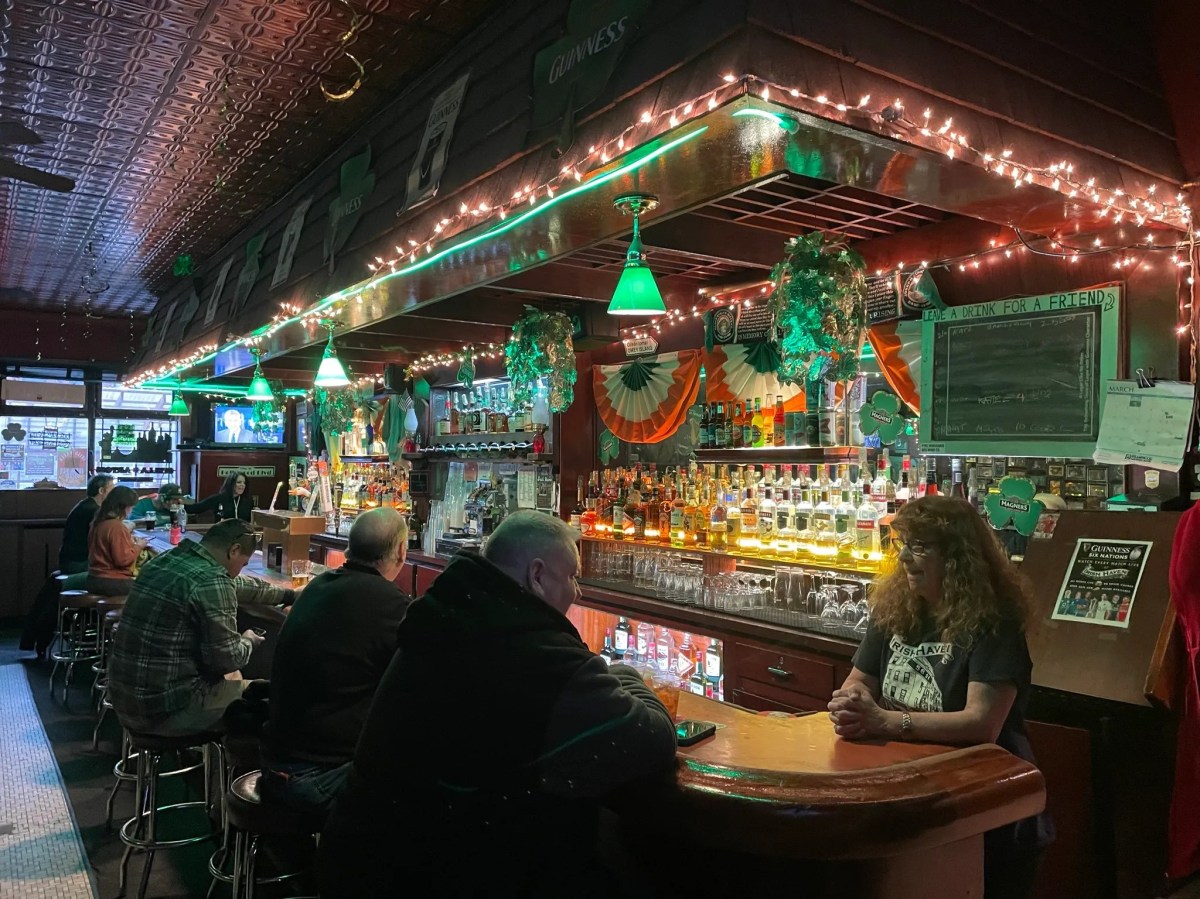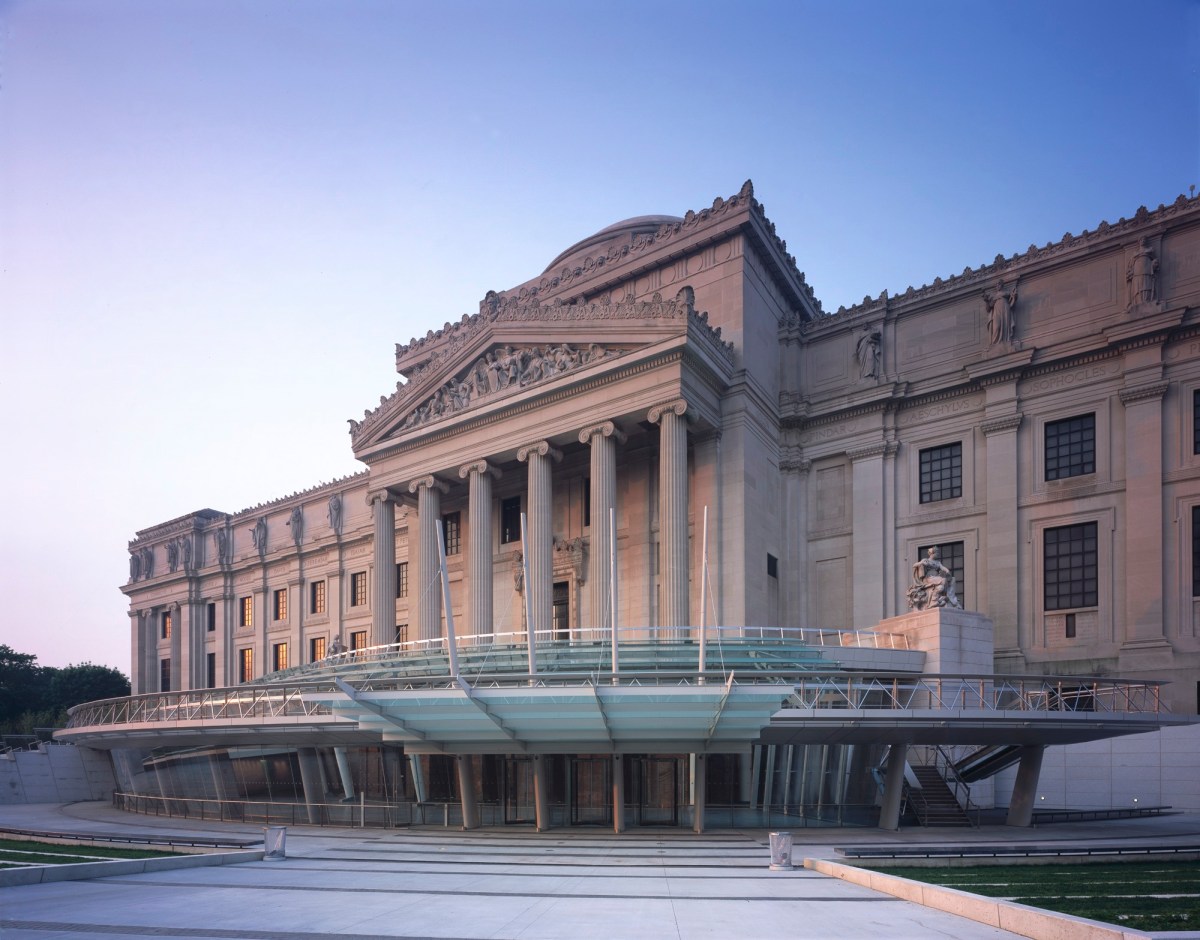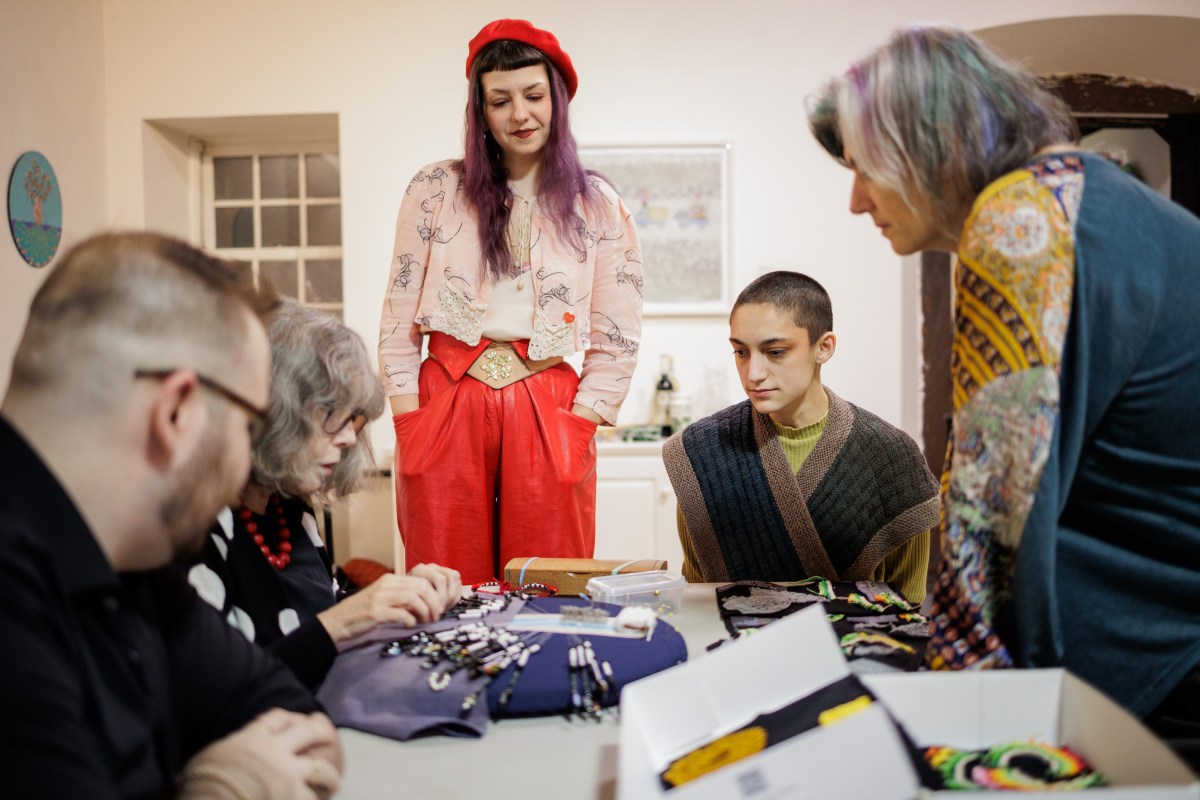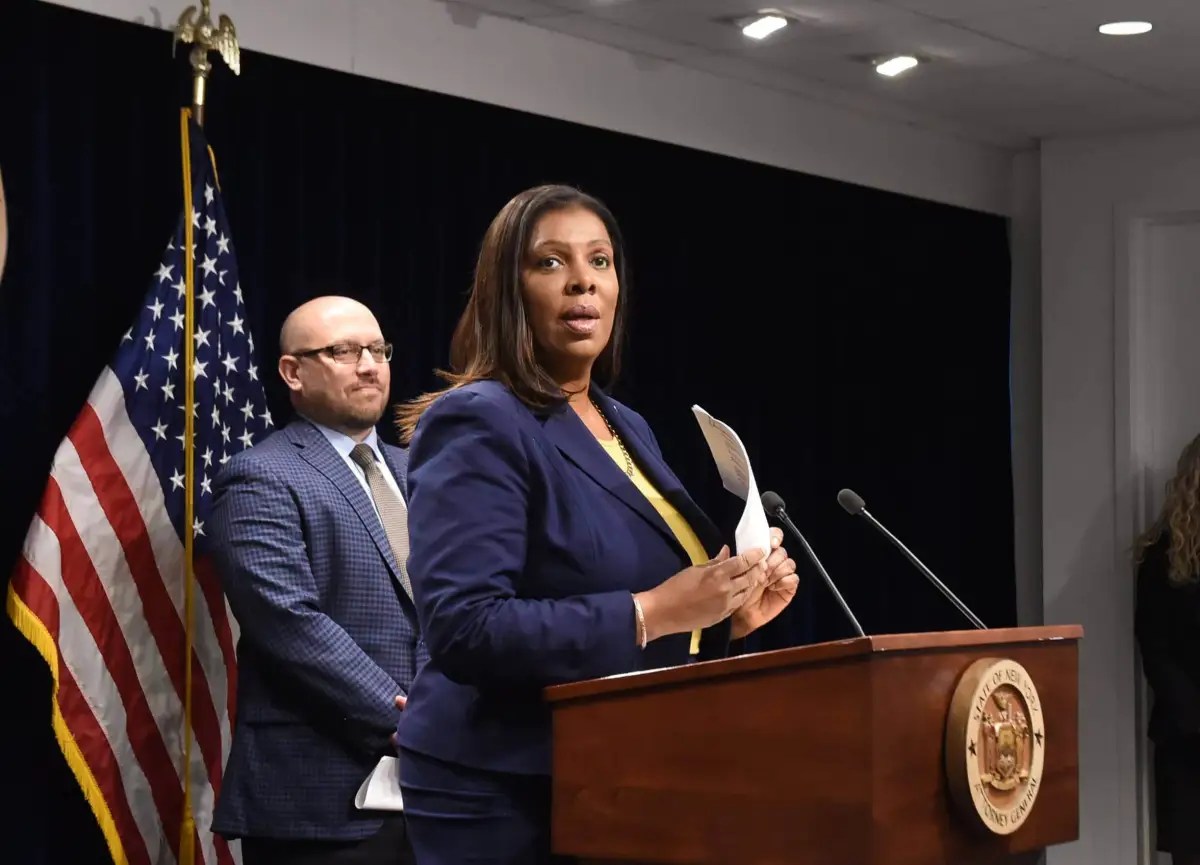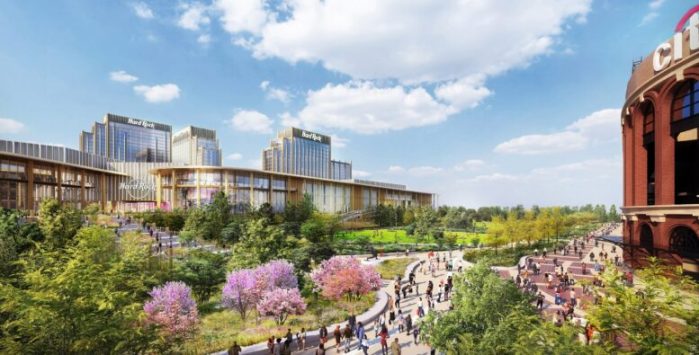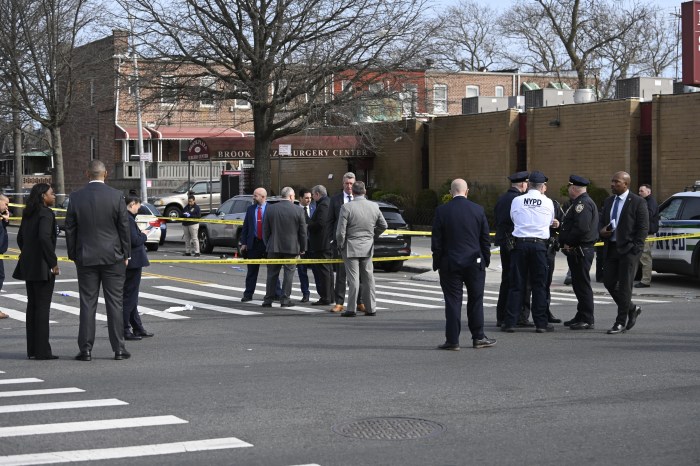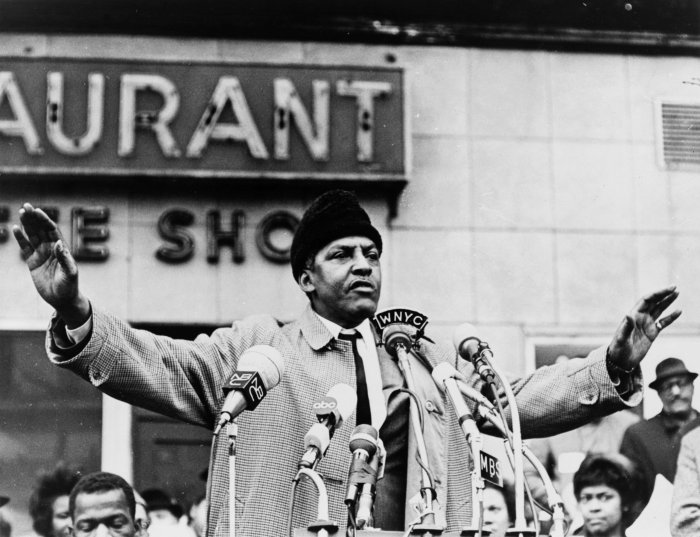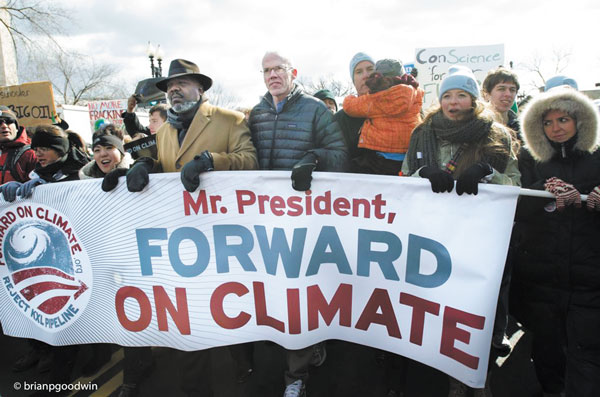
Bill McKibben, founder of 350.org, in black down jacket, center, led the march at Sunday’s rally on climate change in D.C.
BY ROYAL YOUNG | The sprawling chemical plants of New Jersey pump billows of white exhaust into the clear blue February sky, underlining our mission. I am on a bus from New York en route to Washington, D.C., for what promises to be the largest climate change rally in American history. Organized by fantastic and passionate volunteers, these buses are full of a wide range of people young and old with pure motives they share on the four-hour drive: “I’m worried about the polar bears.” “I want to do my part to protest the Keystone pipeline.” “I love the planet.” Yet, my motives are a little more selfish.
I was born and raised on New York’s Lower East Side, pre-gentrification. I remember a Downtown that was both derelict and beautiful, filled with prostitutes who I waved hello to on my way to kindergarten, but also hydrants blasting jets of limitless water into summer streets and smiling Dominican men selling cherry-flavored crushed ice from pushcarts. As I grew up, I saw my neighborhood changed by capitalism. As condos and chic wine bars opened, catering to the rich and hip, my youth disappeared. And the weather changed with it.
There are no more cold, crisp winter days like when my young friends and I built castles out of snow drifts. Now, roses still bloom in Sara Delano Roosevelt Park in mid-January and mild days of sunshine have replaced blizzards. An apolitical, introverted journalist, I at first enjoyed these early warning signs. As a cynical city kid, I callously told friends the unseasonably warm weather was welcome. Then Hurricane Sandy hit.
Sandy devastated New York. I feared for my elderly Jewish grandparents trapped out on Long Island with no heat or power. Though I moved out seven years ago, I packed bags and huddled with my parents in their renovated tenement apartment for a week, and we helped each other through the ordeal. Climate change, with all its catastrophic effects, was no longer something I could ignore.
So when my politically active and admirable younger brother told me he was working with 350.org to organize buses for their Forward on Climate rally, I asked to join.
Washington, D.C., is freezing, but a sea of people stretch as far as I can see, trekking over the muddy National Mall to listen to speakers from another native Lower East Sider, Rosario Dawson, to 350.org’s founder, Bill McKibben. The gathering’s main goal is to show President Obama that he should not pass legislation allowing the building of the Keystone pipeline, which would take the dirtiest fuel on earth from Canada to Texas. Native Indians from Canadian tribes show up on stage to speak about how the Canadian government is trying to take away their lands in the name of mining the earth for resources and money that will line the pockets of the already ultra-rich.
From all over our country, earthlings have gathered to fight for nature. People hug in solidarity, a couple kisses, saxophones blare and voices are raised in chants. Yet, these are not all tree-hugging hippies. They are concerned children, adults, elders, Texans who work in the oil industry, scruffy New Yorkers like myself who see no profit in destroying the planet we live and give birth to new life on. “Organized money can’t beat organized people,” one of the speakers shouts and the roar of the crowd echoes blocks away to the White House.
Yes, there is a dreamy part of me that imagines it might be exciting to live in a post-apocalyptic world where the seas have risen to swallow cities, and resources are fought for by roaming tribes of humans who no longer belong to any one nation but battle each other for fuel. But having been through Sandy and witnessed shuttered gas stations on Houston St., their tanks guarded by armed police; having lived for even a week in an East Village without electricity — with scary nighttime streets shrouded in complete darkness — I know the reality. Climate change is deadly serious, and at the risk of betraying my old happily unaware self, it’s a dangerous problem that must be stopped and so must our attitude toward it.
